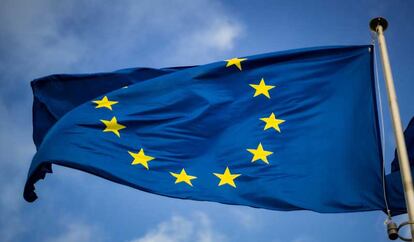Charts to understand the economic challenge of the European Union



Madrid - CET
The current economic situation is at a crossroads due to the geopolitical and production strategy changes that the pandemic and the war in Ukraine have caused in international markets. The Old Continent, and specifically the European Union (EU), is faced with this challenge at a time when its economic power represents 15% of the world's GDP, a figure that has continued to decline little by little in recent years.
In this context, the European Union finds itself in a position where tasks such as the green transition or digitalisation seem crucial to maintaining a position of strength. In this sense, electrification is one of the challenges it faces. In recent years, there has been significant progress in the generation of electricity from renewable sources, driven in part by the cut in natural gas supplies from Russia, which hit Germany particularly hard. After this, other sources of energy have been sought to preserve energy security.
Green energy is cheaper today, which in the medium term can contribute to an improvement in European competitiveness by reducing costs, although considerable efforts will still be required to achieve this. Digitalisation will also be essential to implement the use of artificial intelligence in the production processes of companies. Development and application in the EU varies from country to country, especially in relation to the size of companies, with small and medium-sized companies being the least likely to apply these new tools, which could maximise their capabilities.
Another key issue is investment in Research and Development (R&D), since, as was highlighted at the meeting, it is the key to innovation and maintaining the ability to compete with other powers such as the United States or Japan. Once again, performance in the EU varies greatly from country to country, so the efforts of the new Commission will have to involve homogenising and strengthening this field.
Do you want to add another user to your subscription?
If you continue reading on this device, it will not be possible to read on the other device.
ArrowIf you want to share your account, change your subscription to Premium mode, so you can add another user. Each one will access with their own email account, which will allow you to personalize your experience at EL PAÍS.
Do you have a business subscription? Click here to purchase more accounts.
If you don't know who is using your account, we recommend changing your password here.
If you choose to continue sharing your account, this message will be displayed on your device and the device of the other person using your account indefinitely, affecting your reading experience. You can check the terms and conditions of the digital subscription here.
EL PAÍS






